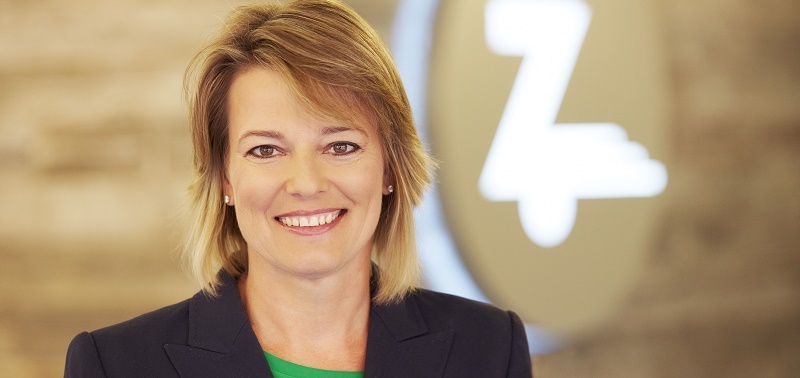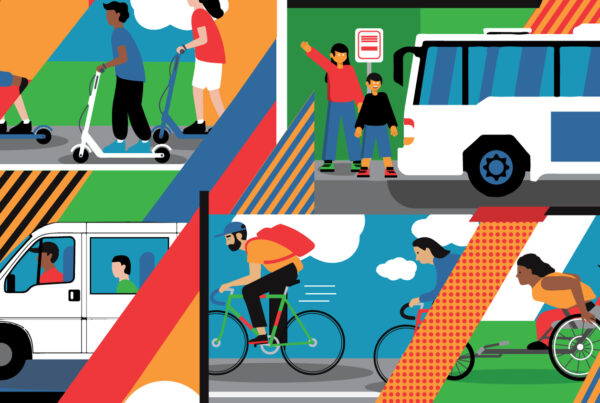Originally founded in Boston in 2000, Zipcar was one of the first companies to realize and expand on the promise of carsharing. Today, the company is the world’s leading carsharing network, with nearly one million members and 12,000 vehicles located throughout Europe, Canada and the United States. In recent years, Zipcar has also continued to innovate through new concepts such as its FastFleet carsharing solution for government and fleet operators and its ONE>WAY point-to-point carsharing pilot. Since 2014, the company’s growth has been led by President Kaye Ceille, who joined Zipcar following nearly two decades of experience at Avis Budget Group, Zipcar’s parent company.
The following is a lightly edited version of the Shared-Use Mobility Center’s conversation with Ms. Ceille.
You started your career as a sales manager at Budget Rent A Car more than 20 years ago. Can you share some perspective on how the mobility industry has changed since then?
Twenty years ago there were very limited mobility options. You owned a car, or took public transit. And when you traveled, you rented a car or took public transit. When Zipcar first started 16 years ago, car sharing was scoffed at. A car was a prized possession that people could not imagine sharing with someone else. Now, it has become mainstream with Zipcar operating in over 550 cities and towns across the globe. People now ask, “Why do you own a car in the city? Why not just use Zipcar when you need one?”
It’s really about context though. Outside of cities there may always be a place for car ownership. Once someone has a large family, or moves out of the city and cannot take public transit, they often will purchase a car. And, it’s often a car that they drove regularly with Zipcar. Vehicle manufacturers often view Zipcar trips as free test-drives.
What’s one thing that surprised you when you transitioned from Avis UK to running Zipcar?
What I found isn’t necessarily surprising, but is definitely inspiring. Zipcar is a mission-driven company committed to enabling simple and responsible urban living. That mission is so remarkably ingrained in the culture and the people here at Zipcar. While everywhere I have worked the people have been smart, dedicated employees, the Zipcar team is truly driven by the company’s mission to make cities better places to live.
What changes or trends do you see ahead for the car sharing industry, and what is Zipcar doing to address them?
With over 50 makes and models, Zipcar already offers its members the flexibility to pick the right car for the right trip. Now, members want more flexibility in the trip. Our ONE>WAY beta program in Boston has taught us a lot about our members desires. They love being able to pick up a car in one place and drop it off in another. They also like that they have unlimited extensions on their reservation which alleviates some of the stress of having to return on time. In the past year, we’ve learned a lot from our ONE>WAY beta program and are eager to use our learnings to not only expand the program elsewhere, but to expand our service offering.
How do you see Zipcar corresponding with other shared modes such as bikesharing and transit?
We know that our members have a “transportation portfolio” that includes a variety of mobility solutions – biking, walking, public transit, taxi and more. We’re a solution for those times when the trip really requires a car – like to go to the grocery store or to head out of the city for a hike. We have great partnerships with bikeshare and many of our vehicles are placed along transit lines as train stations have now evolved into transportation hubs.
Has the rise of ridesourcing providers like Uber and Lyft affected Zipcar’? If so, how?
The popularity of these new companies reinforces what we’ve said for years – that owning a car in a city is a hassle. Zipcar and Uber/Lyft are very different; with Uber/Lyft you ride, with Zipcar you drive. Zipcar enables members to control the driving experience and enjoy being at the wheel. We’re not a taxi-like service; we’re like having a car without having a car. Our vision has long been a world where carsharing outnumbers car ownership and we think we’re closer to that vision than ever before.
Zipcar made headlines when it acquired Buffalo CarShare last fall. Why did Zipcar decide to acquire BCS, and how has the transition gone?
Due to some unfortunate circumstances, Buffalo CarShare – a local non-profit car sharing service – suspended operations in June, 2015 and agreed to work with Zipcar on a transition plan this past fall. The transition has enabled Zipcar to expand in the City of Buffalo and provide former Buffalo CarShare members with convenient access to alternative transportation options. We placed 15 vehicles in the city and are thrilled to be able to continue on Buffalo CarShare’s commitment to providing carsharing to Buffalo residents.
You’ve talked in the past about autonomous vehicles. How might self-driving cars affect the carsharing industry, and what might Zipcar’s role might be in a driver-less future?
We see a future where smart, efficient and connected vehicles will whisk you where you need to go, when you need to go there. You’ll no longer own a car; you’ll own the trip. Some trips will be shared, while others will have the individual in mind – luxury vehicles for date night, hatchbacks for grocery runs, and SUVs for outdoor adventures – with a wide variety of vehicle makes and models to meet the unique needs of each trip. And, as evidenced by recent news in our industry, some of these vehicles could look remarkably different from what we see on the roads today. Today, our members go to the Zipcar. Tomorrow, the Zipcar may be driverless and come directly to you.
Do you have a favorite Zipcar drive or experience? If so, could you share it?
When I moved to Boston to lead Zipcar I wanted to experience all that the area had to offer. One of my favorite trips was heading down to the cape for the first time and spending the weekend on the beach with family and friends. That first trip turned into many more “Ziptrips” to the cape. I actually spent this past summer training for the Pan Mass Challenge on the cape and put my bike in a Zipcar on weekend getaways. Zipcar had a wonderful team this year partake in the PMC ride and I look forward to many more.
What are your hobbies outside of work?
I love to do anything outdoors – biking, hiking, skiing and more. Taking part in the Pan Mass Challenge combined many of my passions – biking, giving back and being a part of a great Zipcar team. In addition, I absolutely love to travel with my family including my wonderful nieces and nephews.



